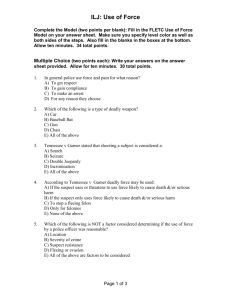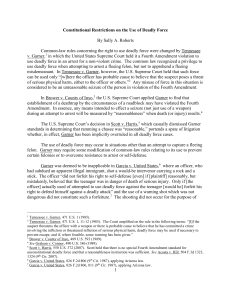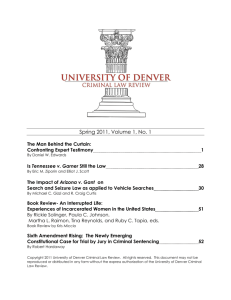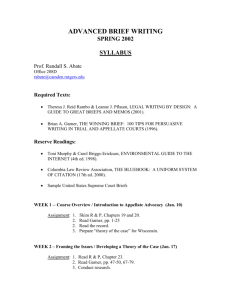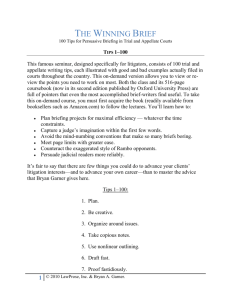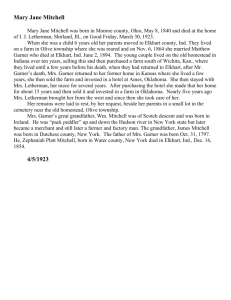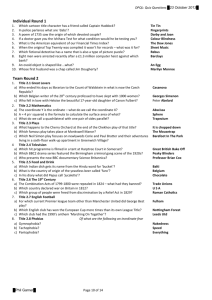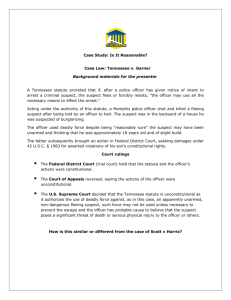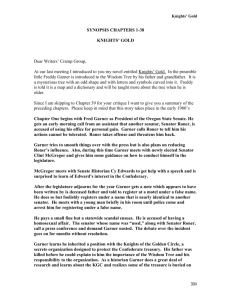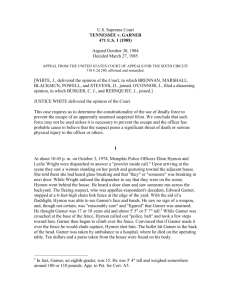USE OF FORCE 20.1.4 Tennessee v. Garner, 105 S.Ct. 1694 (1985
advertisement
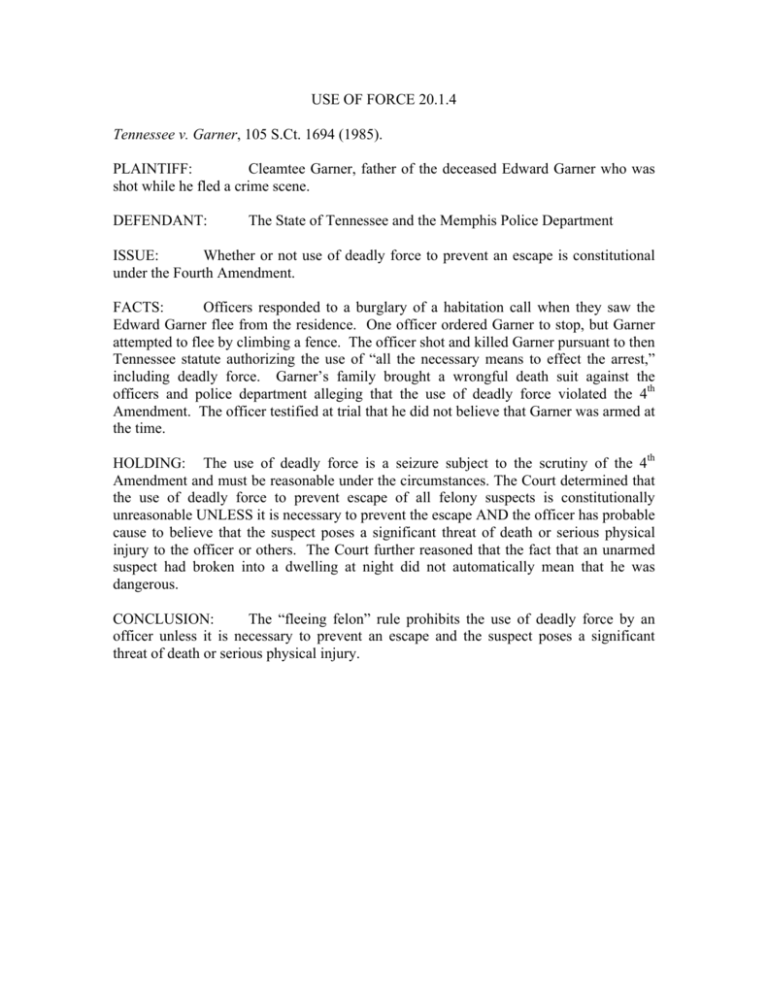
USE OF FORCE 20.1.4 Tennessee v. Garner, 105 S.Ct. 1694 (1985). PLAINTIFF: Cleamtee Garner, father of the deceased Edward Garner who was shot while he fled a crime scene. DEFENDANT: The State of Tennessee and the Memphis Police Department ISSUE: Whether or not use of deadly force to prevent an escape is constitutional under the Fourth Amendment. FACTS: Officers responded to a burglary of a habitation call when they saw the Edward Garner flee from the residence. One officer ordered Garner to stop, but Garner attempted to flee by climbing a fence. The officer shot and killed Garner pursuant to then Tennessee statute authorizing the use of “all the necessary means to effect the arrest,” including deadly force. Garner’s family brought a wrongful death suit against the officers and police department alleging that the use of deadly force violated the 4th Amendment. The officer testified at trial that he did not believe that Garner was armed at the time. HOLDING: The use of deadly force is a seizure subject to the scrutiny of the 4th Amendment and must be reasonable under the circumstances. The Court determined that the use of deadly force to prevent escape of all felony suspects is constitutionally unreasonable UNLESS it is necessary to prevent the escape AND the officer has probable cause to believe that the suspect poses a significant threat of death or serious physical injury to the officer or others. The Court further reasoned that the fact that an unarmed suspect had broken into a dwelling at night did not automatically mean that he was dangerous. CONCLUSION: The “fleeing felon” rule prohibits the use of deadly force by an officer unless it is necessary to prevent an escape and the suspect poses a significant threat of death or serious physical injury.
